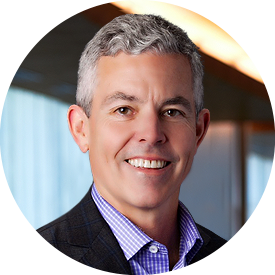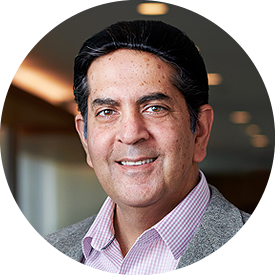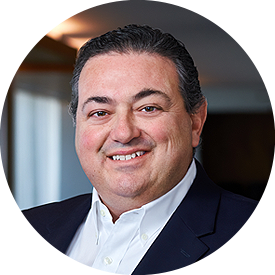When the kidneys fail, it is called kidney failure or end-stage kidney disease (ESKD). Current treatment options include dialysis or a kidney transplant. Dialysis is a treatment that removes waste products and excess fluids from the bloodstream.
While dialysis does replace some of the work that your damaged kidneys are unable to continue doing, you will need to limit how and what you consume. Your nephrologist can help you find a renal dietician to create an individualized kidney-friendly eating plan.
Key Points
- Dialysis is a treatment option for kidney failure or ESKD that cleans the blood when the kidneys are no longer able to.
- The goal of good nutrition in a dialysis patient is to reduce waste and fluid buildup in the bloodstream.
- Nutrition requirements may change depending on the type of dialysis treatment and individual needs. There is no single eating plan that is appropriate for all dialysis patients.
What is Dialysis?
Dialysis is needed when a person has kidney failure or ESKD. Kidney failure means that the kidneys are no longer able to function properly and remove waste products and extra fluids from the blood. This leads to waste products and extra fluids building up in the bloodstream, causing symptoms such as:
- Muscle cramps
- Swelling in the ankles and feet
- Urinating more or less than normal
- Reduced appetite
- Nausea and vomiting
- Itchy skin or rashes
- Frothy, foamy, or bubbly urine
- Trouble falling asleep or staying asleep (insomnia)
- Breathlessness
Dialysis is a treatment that removes waste products and extra fluid from the blood when the kidneys are unable to. There are two types of dialysis: peritoneal dialysis (PD) and hemodialysis. PD involves a fluid being placed in the belly (stomach area) of the body via a catheter to clean the blood. This fluid is removed multiple (several) times a day and overnight. Hemodialysis involves a machine that cleans the blood; this can be performed every day at home or at a dialysis center. Hemodialysis cleans the blood via an AV fistula in the arm, a catheter in the chest, or an AV graft in the groin area, thigh, or arm.
Why Dialysis Patients Need a Specialized Diet
Dialysis can only perform 10-15% of what a healthy kidney can. This means that even though dialysis removes excess fluid and waste products from the blood, you will need to limit fluids and certain foods in your diet. It is important to ensure that you are getting the correct amount of calories, protein, and vitamins in your diet. Your renal dietician will help plan your meals and snacks, ensuring that you are getting the nutrition you need to keep you healthy and prevent waste and fluid from building up.
Peritoneal Dialysis
As peritoneal dialysis (PD) works day and night to remove waste products and excess fluids from the bloodstream, you may find that you are able to have slightly more fluids, phosphorus, sodium, and potassium in your diet. You may also be advised to eat more protein in your diet. If you are on PD, your renal dietician will help you make a diet plan that is best suited for your needs.
Hemodialysis
If you receive hemodialysis treatment at least three times a week, you may find that you have to limit fluids, sodium, potassium, and phosphorus in your diet. This is due to the time between dialysis treatments, as the blood only has the waste products and excess fluids removed three times a week. Your protein intake may also need to be reduced.
If you are receiving hemodialysis every day, you may be able to be less strict on what you have to reduce. Your renal dietitian will be able to advise you on the amount of fluids, sodium, potassium, phosphorus, and protein that you need.
Steps for ESKD patients with diabetes
You will need to work with your renal dietician to ensure that you are getting the nutrients you need while managing your blood sugar levels. If you are receiving PD treatment, it is important to remember that the PD solution contains dextrose, a type of sugar. Thus, it is important to include the dextrose (sugar) in your PD solution as sugar in your diet. If you have any questions about managing blood sugar levels while receiving dialysis, talk to your nephrologist or renal dietician.
Nutrition and Dialysis
Protein
Protein is essential for repairing tissue and growing and building muscle. When you eat protein, urea (a waste product) is produced. Since the kidneys are not functioning properly, the urea builds up in the bloodstream. Therefore, diet and dialysis treatment are essential in keeping the urea level down.
Dialysis removes urea and proteins that would normally stay in the blood, so you will need to eat high-quality protein to replace what is lost. Your renal dietician will advise you about the best protein sources for you.
Potassium
Potassium is found naturally in most foods and is an essential mineral needed by the muscles. Too much or too little potassium in the diet can be dangerous to the heart. Too much potassium is called hyperkalemia. Dialysis patients may experience fluctuating potassium levels. This can lead to weakness, irregular heartbeat, and muscle cramps. Excess potassium may result in a heart attack. Your potassium level will be monitored by your care team.
Phosphorus
Phosphorus is a mineral found in all foods that the body needs to help keep the bones healthy. Healthy kidneys balance the amount of phosphorus in the body. When there is too much phosphorus in the body, it is called hyperphosphatemia, which can lead to bone disease, as calcium is pulled from the bones. You may be prescribed a medicine called a phosphate binder that controls the amount of phosphorus in the blood. Talk to your renal dietician about how much phosphorus you should be having each day.
Salt and Sodium
Sodium is also an essential mineral that the body needs to function correctly. It helps balance fluid levels in the blood; however, when there is too much sodium, the body retains excess water. This can increase blood pressure and impact dialysis treatments. By reducing and limiting the amount of sodium in your diet, you can help manage blood pressure levels and reduce fluid weight gains between dialysis sessions.
You can use spices and herbs, and low-salt flavor enhances as a salt replacement. Avoid salt substitutes made with potassium.
Fluids
Fluid (water) can build up in the body between dialysis treatments. Too much fluid can lead to hypertension (high blood pressure), heart failure, trouble breathing, and swelling (edema). Excess fluid can also negatively impact dialysis treatments. If you are required to limit fluids, you will need to reduce how much you drink and foods that contain a lot of liquids, such as soups, ice cream, ice, and fruits and vegetables, such as watermelon.
Your renal dietician will advise you on how much fluid you can have every day.
Panoramic Health
Panoramic Health is the leading integrated provider group delivering the future of kidney care. Our mission is to improve outcomes for patients by slowing disease progression and improving their quality of life. We do this through the distinctive capabilities of our comprehensive care model, which brings together an integrated provider group with operational support, clinical support, and data & analytics at scale.
Through partnerships with practices, providers, payers, and health systems, we work to advance the usage of clinically validated best practices and cutting-edge data analytics across a continuum of reimbursement models.
*No information presented here should be construed as medical advice. Every patient is unique, and patients should consult a qualified physician to determine what is best for them.














